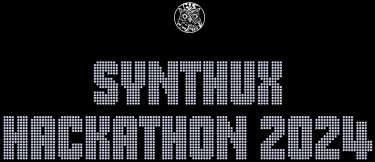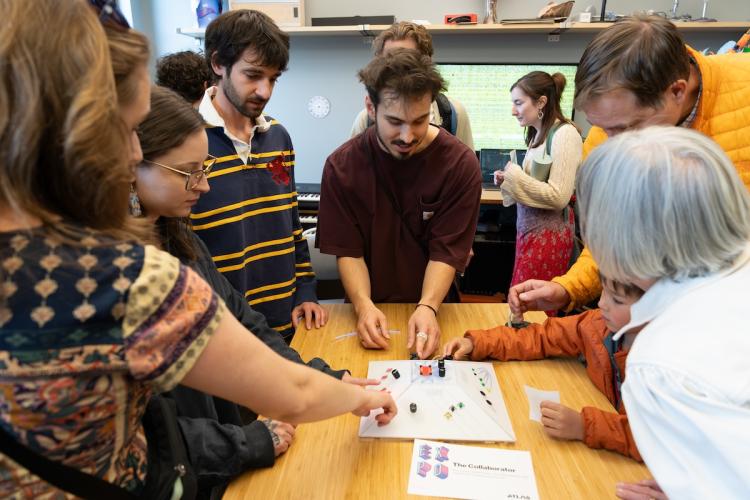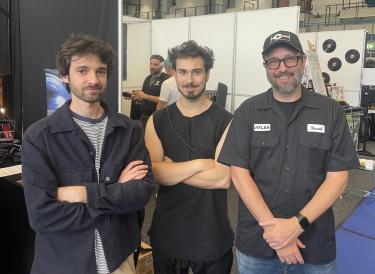ATLAS Team Scores at SynthUX Hackathon

The ATLAS Institute champions radical creativity and invention as a means of expanding the scope of our understanding of the world and building community. The ATLAS Audio Frequency Lab, led by associate teaching professor and Audio Frequency Lab director, David Schaal, encapsulates these ideals as a creative experimental space for sound production, sampling and musical performance.
Recently, groups of lab members along with students from across CU Boulder took part in the Synthux International Synth Design Hackathon, a multi-day competition to design and create a working prototype of an electronic synthesizer, and an ATLAS team was honored with the top prize for their 4-player Collaborator synth!
Synthux Academy, the hackathon organizer, is a Netherlands-based group founded by musician, designer and teacher, Roey Tsemah, to create learning activities for sound artists and makers.
The SynthUX Hackathon 2024 featured teams from universities around the world who selected from a set of prompts centered on the theme of “Humanity” to design an interactive, sound-producing device. Schaal has been active with SynthUX for several years as a way to build cross-campus community around collaborative making.
The Collaborator team, Julian Ferraro, Nick Lankau, Nik Madhu, Ana Mahadevan, and Josh Thies, chose the prompt “Virtual Human Connection” to guide their ideation. The prompt stated, “Explore the dynamics of human connection in the age of technology. Depict the intersection between virtual and physical connections, highlighting the challenges and opportunities.”

Lankau said, “The Collaborator is inspired by the peace that I find in music creation and the joy of playing with sound. I want other people who may not have musical backgrounds to be able to experience this. It’s also inspired by jam sessions I’ve had with friends and the desire to be able to do that with my brothers who are less musically inclined. Collaboratively creating music is inextricably human and should be accessible to everyone.”
This spirit of collaboration is what the hackathon is all about. Schaal explains, “instead of a competition-competition, it's more sharing ideas, building something cool and sharing with others to inspire future coursework and education.” (This year, CU teams faced an additional hurdle to collaboration in overcoming two days of snow-related campus closures that disrupted the early phases of their work.)
Check out a demo of Collaborator in action

Designing and fabricating a working synthesizer in a custom enclosure in just three days? “That’s ATLAS,” Schaal notes. “It’s what we're capable of. The BTU and everybody here preparing these students to do something [like this] is very special and unique.” The team demoed Collaborator at ATLAS EXPO 2024, where it held up to dozens of community members going hands-on with it.
In recognition of their efforts, Ferraro, Lankau and Schaal traveled to Berlin to demo Collaborator at Superbooth, “the world’s largest trade fair and festival for electronic musical instruments” featuring “over 250 exhibitors from all over the world, while also offering a comprehensive cultural program that celebrates the culture and joy of electronic music-making.” They were blown away by the support and engagement they received and the connections they made among industry pros and musicians.
As for what comes next, Lankau relates, “I want to continue working on this concept of collaborative and accessible audio. Making another version of the Collaborator sounds like a blast, and we already have so many ideas on how to improve it. Being able to hone in on the conceptual niche of collaborative and accessible audio just opens up so many ideas for me.


